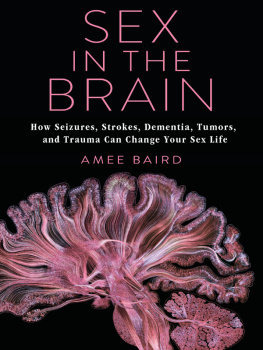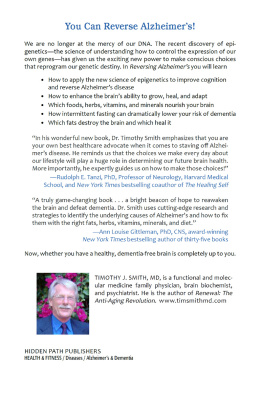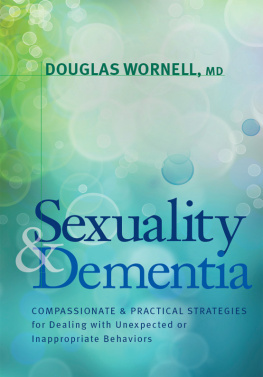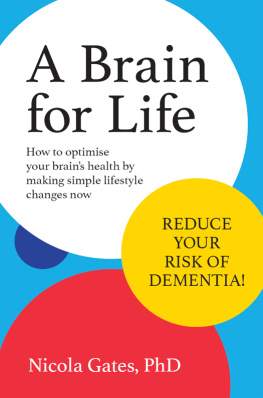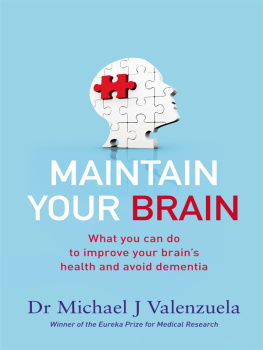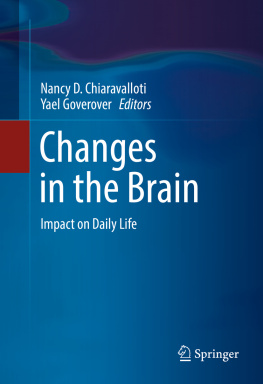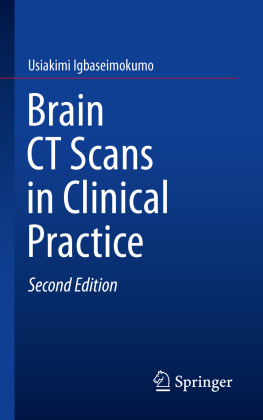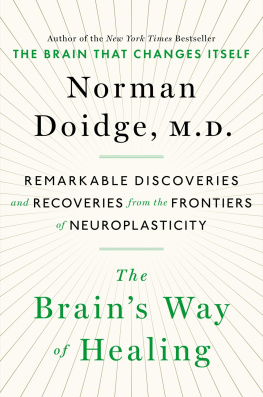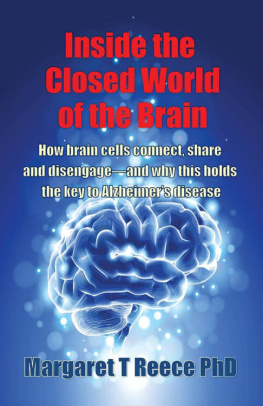Table of Contents
SEX
IN THE
BRAIN
SEX
IN THE
BRAIN
How Seizures, Strokes, Dementia, Tumors, and Trauma Can Change Your Sex Life
AMEE BAIRD
Columbia University Press
New York
Columbia University Press
Publishers Since 1893
New York Chichester, West Sussex
cup.columbia.edu
First published in Australia by NewSouth, an imprint of UNSW Press Ltd.
Copyright 2020 Amee Baird
All rights reserved
E-ISBN 978-0-231-55155-7
A complete cataloging-in-publication record is available from the Library of Congress.
ISBN 978-0-231-19590-4 (hardback)
ISBN 978-0-231-55155-7 (e-book)
LCCN 2019034638
A Columbia University Press E-book.
CUP would be pleased to hear about your reading experience with this e-book at .
Design: Josephine Pajor-Markus
Cover image: Self Reflected in Violets, 22K gilded microetching under multicolored light, 20142016, Greg Dunn and Brian Edwards, www.gregadunn.com
CONTENTS
The cases discussed in this book are drawn from people who were seen by the author in her clinical practice or research, or are based on published cases in medical journals. In the case of the authors patients, their names and identifying features have been changed to protect their anonymity. Some cases are an amalgamation of published case studies, and for some of these the author has created fictional life stories to emphasise that these are not just medical subjects, but people with complex personal lives. In all cases, however, the details about neurological conditions and the associated sexual changes are entirely factual.
There is nothing more fundamental, personal or universal to humans than sex. Without it, none of us would be here. Sexual thoughts, desires and behaviours are part of daily life for many, occurring a little or a lot, but for others they barely exist, or perhaps linger only in a whisper and a tingle of memory.
So what controls our sex drives and lives? It might feel like its our hearts, or even our genitals, but its our brains.
Surprisingly, there has been very little research on how our brains do this. Despite our society being saturated with sexual images, the scientific study of human sexual behaviour is very limited compared to research into other human behaviours. What we know about how our brains control our sex lives comes from extrapolating from animal research, recent brain imaging studies, and observations of how sex drive and behaviour can change when a brain is damaged due to injury or disease. It is this final area of study that is the focus of this book.
Certain parts of our brains play a crucial role in controlling our sex drives and sexual behaviour, in particular the frontal and temporal lobes and specific structures within them. If these brain regions are invaded by a tumour, or deprived of oxygen during a stroke, or damaged in a motorbike crash, or disrupted by the neuropathology of dementia, your sexual behaviour could change radically: you could lose all interest in sex, you could be entirely consumed with thoughts of how to get more of it, or you could suddenly develop a new sexual interest or preference.
Sex is typically not the first thing that comes to mind when you think of life after a traumatic brain injury or stroke, or during treatment for Parkinsons disease, or in the early stages of dementia, but all these neurological conditions and many more can cause dramatic changes to our sex drives and lives. This is not a topic that is raised very often when dealing with these conditions, but it can have an exciting or devastating impact on our relationships. Doctors rarely discuss it, and patients may hesitate to bring it up when changes in the brain mean that so many other things need medical attention. But wanting too little or too much sex, or changing sexual preference, can devastate relationships and in rare cases even lead to criminal behaviour. For this reason, the sexual side effects of brain disorders need to be understood.
When I decided to commit four years to a PhD in neuropsychology, I knew I had to choose a subject that I found intriguing and would keep me eager to learn more. It had to be related to patient care and have real-life implications. I hit the jackpot when I met with my future supervisor, who ran a rehabilitation clinic to support people with epilepsy who had undergone neurosurgery. She described how some of them had reported dramatic increases in their sex drive, known as hypersexuality. There were a few reported cases in the literature, but no thorough investigation of why this occurred in some patients. Was it a psychological reaction to sudden seizure freedom, or did it have something do with the part of the brain that was removed during surgery? I was hooked. I still am.
I decided to write this book when I realised it had been nearly two decades since I completed that PhD research. I had the urge to share some case histories in the hope that it would bring this topic out of the bedrooms of those who have experienced changes in their sex lives through brain injury or disease and to the attention of all of us. This book is intended for intellectually curious readers who are interested in the brain and learning how brain disorders can impact on those most personal parts of peoples lives their sex drive and behaviour. It is not an academic or scholarly work with all the answers to how your brain controls your sex life. Rather, it describes real cases of people who have experienced an alteration in their sex life due to brain injury or disease, and highlights some of the research on this topic. Some of the cases describe very rare sexual side effects of brain disorders or neurosurgeries, while others outline more typical sexual effects of neurological conditions. Fascinating, and sometimes funny or frightening, all the cases illuminate links between specific parts of the brain and sexual functions.
For those with no personal experience of a brain disorder, I hope this book will provide unique insights into the experiences of people living with brain conditions. I also hope this book provides comfort to those who have experienced sexual changes in the context of their neurological disorders, knowing that there are others who have felt the same. The patients and partners I interviewed for my research were so relieved to be able to discuss their situations, and to learn that others had experienced similar things. I can still recall a comment made by the husband of a woman who had the temporal lobe of her brain removed to relieve her of seizures. He was exhausted by her postoperative sexual requests, and incredibly albeit jokingly enquired whether he could have the same operation. Can you give me one? he asked. I cant keep up!
AS A CLINICAL NEUROPSYCHOLOGIST, I HAVE THE privilege and luxury of spending several hours with my patients. This is typically an unusual experience for most people who are used to spitting out their symptoms to a rushed GP or medical specialist in under 15 minutes. When I conduct a neuropsychological assessment, I spend up to an hour taking my patients history their story with a focus on their cognitive or thinking skills, such as memory. Its a bit like being a detective of the mind. I need to figure out if there has been any change in their cognition skills and, if so, what the changes are and why they have occurred. Sometimes the why is already known, such as when someone sees me after having a traumatic brain injury in a car crash. At other times, the why is the crucial question. A man in his fifties is struggling to find words and losing his train of thought in conversations. His driving has become erratic and he forgets to take his medications. Is he just stressed out, or is there something more sinister, like an early-onset dementia, occurring in his brain?

